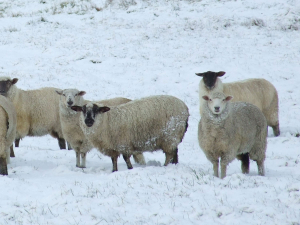With winter setting in, farmers are being reminded to keep an eye on animal welfare.
The Ministry for Primary Industries (MPI) wants pastoral livestock farmers to be aware of their animal welfare responsibilities, whether animals are kept at home or sent off-farm to graze.
“This time of year can be challenging for farmers, with wet and muddy conditions increasing risks to the welfare of their livestock,” says Kate Littin, manager animal welfare.
“Many farmers, particularly in Southland and Otago, choose to break feed stock on crop over the winter months. It’s a great way to provide food for animals and protect pastures, but does require careful planning and good stockmanship to avoid welfare risks that wet weather can bring.”
New Zealand’s codes of animal welfare require livestock to have access to areas free of surface water and mud, and appropriate shelter from adverse weather.
Animals will refuse to lie down on wet ground and can then become stressed, stop eating and are more susceptible to lameness, Littin says.
There are a number of ways farmers can mitigate risks to animal welfare over winter.
“If there is a spell of extreme weather or prolonged wet conditions, you may need to move your stock off the crop to drier land, and you should plan for this possibility – having a ‘plan B’ is the key.
“Clean drinking water must be available for animals at all times. Owners are still responsible for the welfare of their stock while they are off-farm for winter grazing and should check on the conditions, including their access to shelter and water.
“When transitioning from pasture to crop and back again, stock can be negatively affected. Ensuring you follow a gradual transition plan when moving your animals will prevent issues.”
MPI recommends talking to your vet for help with planning and any animal health concerns. Resources to help farmers with their winter grazing management are available online from DairyNZ and Beef+Lamb New Zealand



















